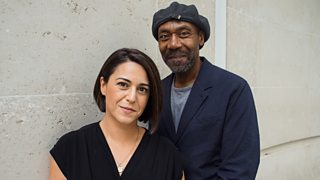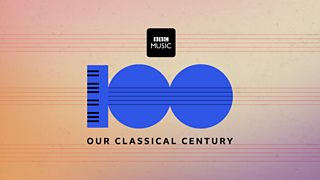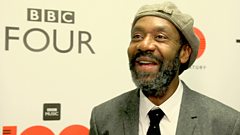
Ravi Shankar and Yehudi Menuhin: West meets East
On 26 June 1966 the most famous violinist in the world sat facing the most famous Indian classical musician in the world.
On 26 June 1966, in the cream and gold splendour of The Guildhall in Bath, the most famous violinist in the world sat cross-legged on a stage facing the most famous Indian classical musician in the world.
The relationship between Yehudi Menuhin and Ravi Shankar is one of the most touching (and longest-standing) of musical friendships. They were formally introduced in 1952, when Menuhin had been invited to Delhi by the Indian PM Nehru. On that visit Nehru played matchmaker between Menuhin and two people who were to have a profound influence on the rest of his life. One was the yoga teacher BKS Iyengar, and the other was Ravi Shankar.
Ravi Shankar recalls that he and Menuhin had met much earlier - in 1932, when Shankar was a 12-year-old member of his brother鈥檚 dance troupe living in Paris. The 16-year-old Menuhin, already world-famous, came to their house to play with his sister Hephziba on piano. "I was overwhelmed by the sound he made," Shankar said.
Menuhin, for his part, saw in Shankar鈥檚 musicianship a combination of the rigour of his own training, and a freedom - something he described as "an 鈥榚lectric instantaneousness" - that Menuhin felt was lacking in Western music. Meeting Shankar was, said Menuhin, "more exciting that Columbus discovering America, probably". The friends had played in the same concerts since the 1952 meeting, but never together.
"I was hesitant the first time that Ravi said: 'You must play music with me,'" Menuhin said, "but I finally took the plunge and we locked ourselves away while he gave me lessons in the basic formation of the music patterns." The music was written down for Menuhin and he negotiated the contours of the raga with impeccable virtuosity.
After the Bath concert, the two committed their collaboration to vinyl. The subsequent album, West Meets East, spent six months at Number One of the Billboard classical charts and won a Grammy in the chamber music category - the first time an Asian musician had won an award for chamber music.
1966 was a kind of miracle year for Ravi Shankar, as his influence began to spread out in different directions. As well as this musical encounter with Yehudi Menuhin, he worked in Paris on a score for the cult film Chappaqua, assisted by a young Fulbright Scholar called Philip Glass. Glass still talks about Shankar as one of his most important influences. That same summer, Ravi met the Beatle George Harrison. Perhaps 1966 was the year that world music began.
This is one of 100 significant musical moments explored by 麻豆官网首页入口 Radio 3鈥檚 Essential Classics as part of Our Classical Century, a 麻豆官网首页入口 season celebrating a momentous 100 years in music from 1918 to 2018. Visit bbc.co.uk/ourclassicalcentury to watch and listen to all programmes in the season.
This is an excerpt from Swara-Kakali from the album West meets East by Ravi Shankar and Yehudi Menuhin.
Duration:
This clip is from
Featured in...
![]()
The music of Our Classical Century—Our Classical Century
100 recordings to celebrate 100 years of exciting, inspirational, rule-busting music.
More clips from Our Classical Century
-
![]()
Step outside your musical tribe
Duration: 02:49



